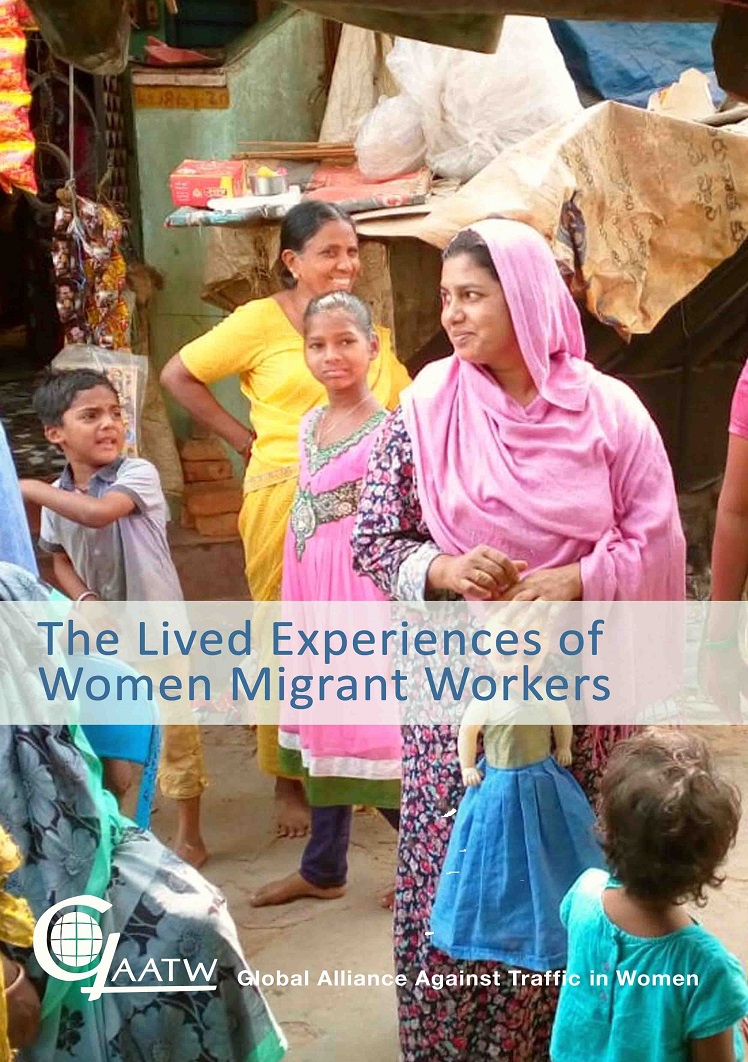In 2018, the International Secretariat of the Global Alliance Against Traffic in Women (GAATW-IS) worked with partners in nine migrant-sending and receiving countries to document the lived experiences of women workers with regard to their migration . The research went beyong taking note of the forms and levels of violence that women migrant workers faced: it took a close look at the structural inequalities embedded into the current migration regime that allow such violence to persist.
This Report draws on the findings of a feminist participatory action research (FPAR), through which project partners spoke with 214 women migrant workers across the nine countries. Most of the women came from Bangladesh, Ethiopia, India, Nepal and Sri Lanka, and a smaller number from Benin, Guinea and the Philippines. For most, the Gulf Cooperation Countries (GCC), Lebanon and Jordan were the main destinations.
This report is based on the thematic issues that came out of the country reports, which include:
- Sending countries need to evaluate the effectiveness of labour mobility restrictions currently in place, in consultation with women migrant workers, and identify how to facilitate women’s access to legal routes for migration.
- Information on safe migration needs to reach potential migrants not at the pre-departure phase, but at the pre-decision phase. Safe migration messaging is not reaching the target community through the current channels of communication. Women migrant workers trust the messages they hear from other returnees and the recruitment brokers/agents.
- Despite the vital role that they play in improving the lives of women migrant workers, there is limited interaction between civil society organisations in sending and receiving countries. Cross-regional knowledge and information sharing can support both programme and advocacy planning and implementation.
- Women migrant workers do not ask for rescue but for the tools that will equip them to renegotiate the power dynamics between them and the agents and employers: they want to be able to report, reduce, and remove themselves from situations of violence without fear of criminalisation and further violence. Such tools will require policy interventions that consider their lived experiences.
Download the complete report here.
Country Reports
A Feminist Participatory Action Research: Safe and Fair Migration of Bangladeshi women migrant workers, OKUP, Bangladesh.

